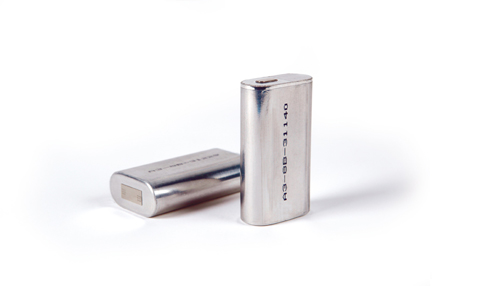ANN ARBOR, MI (that’s right; a dateline on a blog!) — The Inspired Economist has landed in the pastoral hills of southeastern Michigan to bring you coverage of the 2010 Net Impact Conference hosted by the Ross School of Business at the University of Michigan.
Last evening in the Blau Auditorium in downtown Ann Arbor, Net Impact Executive Director Liz Maw kicked off the conference — where 2,500 people are reported to attend — moderating the Welcome Keynote, Corporate Responsibility 2020: The Future of Sustainable Business with the following:
Susan M. Cischke, Group Vice President, Sustainability, Environment and Safety Engineering, Ford Motor Company
Aron Cramer, President and CEO of Business for Social Responsibility
Rose Kirk, Vice President – Public Affairs, Policy & Communications, Verizon Communications
Here’s a review of the session with some of the more salient and compelling remarks regarding the future of sustainable business. There certainly was an implicit anti-government tone to this panel with respect to how the sustainability agenda gets accomplished. All panelists agreed that the US needs an national energy policy so that a roadmap can established to prepare the necessary R & D to support the infrastructure changes (particularly the national electric grid). However, all panelists essentially argued that private business and not public policy must take the lead on sustainability.
Susan M. Cischke, Ford Motor Company
“Passionate is not enough,” Susan began. “We need to understand how are vehicles can be more sustainable across our portfolio and focus on the technologies that foster this change.” Susan explained how Ford sought to find technlogy partners to improve fleet and operational efficiency ( e.g., the green roof installed at one of their corporate locations in Michigan). The green roof procurement decisions was driven by the fact that the building would have 1/3 less energy costs.
Susan discussed how Ford’s Four Pillars — quality, safety, smart and green — have been embedded in the firm’s approach to product design, marketing and the employee value proposition.
And finally, Susan told the crowd at Ross how pleased Ford was to announce just this week its sixth consecutive profitable quarter.
Susan concluded her remarks by discussing how Henry Ford’s vision — providing transportation or “freedom” to all Americans — is still very much about how the company markets its products. Sustainability shows up in this mantra because now Ford is focused on opening up better transportation channels to people all over the world, such as in Asia-Pacific where Ford anticipates being 1/3 of its market in 10 years.
One final interesting nugget from Susan’s appearance was a program she mentioned where Ford was working with the World Bank on delivering vehicles to villages in Africa. Apparently, Ford and the World Bank have looked into reducing congestion in African communities by providing village-shared cars. Interesting.
Rose Kirk,Verizon Communications
Rose began her talk by reviewing four national social challenges we were facing ten years ago: education, healthcare, technology and the environment. She then established Verizon’s sphere of influence in these areas essentially arguing that the firm’s success depends on a healthy society. After spending some time touting Verizon’s philanthropic activities, such as the Verizon HopeLine that provides mobile service to victims of domestic violence, Rose articulated Verizon’s vision for sustainability ten years down the road.
The expansion of global markets, the new balancing of doing business in the global south (per a recent McKinsey report) and innovation to open communications to more customers were staples of Rose’s vision. Interestingly, she emphasized how Verizon seeks an unregulated global communications market, so that it can better provide the public goods government cannot.
One comment Rose made still confounds me. She mentioned that Verizon’s internal sustainability journey is dependent on “followership.” That even though everyone wants to be leader, a key component of institutional change is following the leader. Verizon has expanded its employee issue on sustainability with green teams and “green bag’ lunches. Still, this has to be the first time a corporate executive has extolled the virtues of “followership.”
Aron Cramer on the threats to CSR
Aron talked about how business leaders must adapt to the changing global landscape by developing fluency across business units and across civil society — NGOs and government institutions. He actually made a case that the corporate world may be doing a better job at this sort of integration than business schools. I certainly agree.
A member of the audience asked Aron whether or not he felt CSR reports should be mandated.
Aron explained that he felt mandated CSR reporting could be useful, but would most certainly result in compliance reporting, which could diminish the value of this sort of information. “Not even their mothers [CSR report authors] read all of them,” Aron chided.











I wanna find more info about this, anybody could?